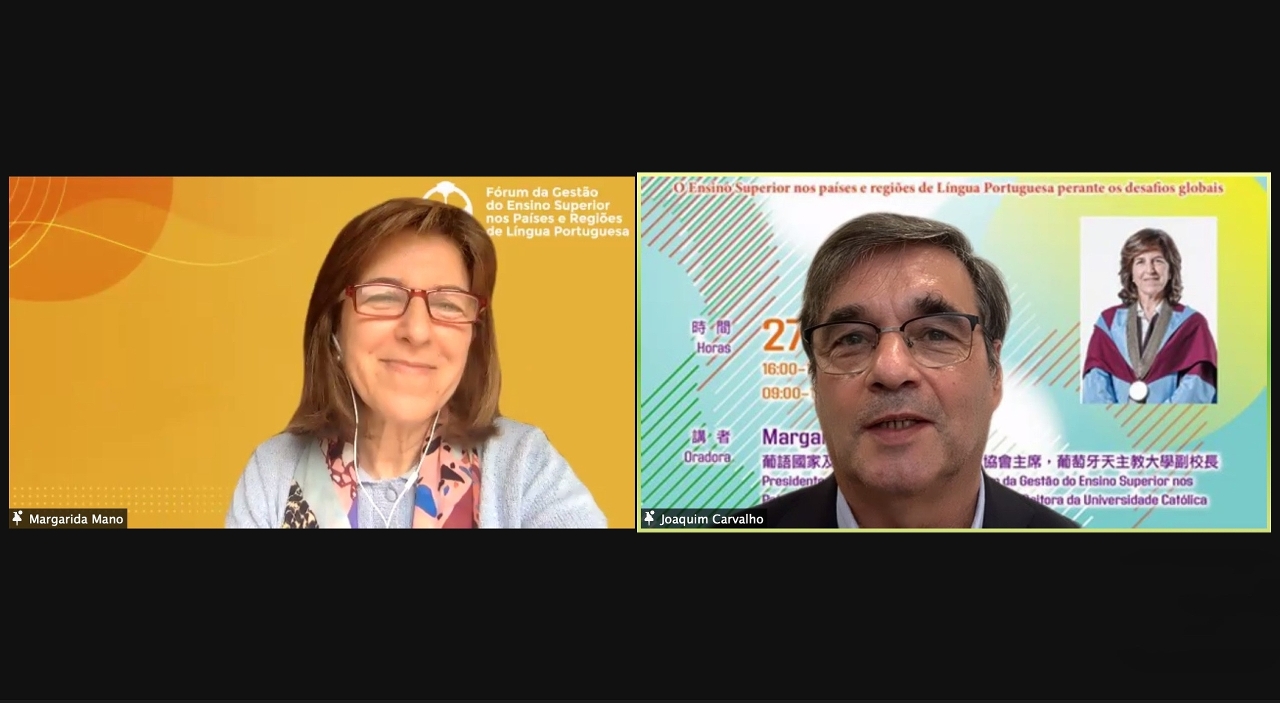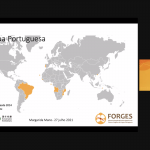 IPM held the first online lecture of "Lecture Series with Sino-Portuguese Celebrities" focusing on the challenges and opportunities brought by the pandemic to higher education in Portuguese speaking countries and regions
IPM held the first online lecture of "Lecture Series with Sino-Portuguese Celebrities" focusing on the challenges and opportunities brought by the pandemic to higher education in Portuguese speaking countries and regions
In order to deepen academic cooperation between China and Portugal, and to strengthen the connection between Macao and Portuguese-speaking countries and regions in higher education networks, the Macao Polytechnic Institute (MPI) and the Management Forum of Higher Education in Portuguese Speaking Countries and Regions (FORGES) have jointly launched the "Lecture Series with Sino-Portuguese Celebrities" on the occasion of the 40th anniversary of the Macao Polytechnic Institute. The first lecture was successfully held online on 27th July, with Margarida Mano, President of FORGES and Vice-Rector of the Catholic University of Portugal, as the keynote speaker. The lecture focused on the difficulties faced by higher education institutions in Portuguese-speaking countries and regions under the epidemic, and analyzed opportunities arising from the crisis, as well as looking forward to future academic cooperation. The lecture attracted a large number of students and teachers from local and overseas universities, researchers and Chinese and Portuguese scholars. The atmosphere was very enthusiastic.
The first lecture was moderated by Joaquim Ramos de Carvalho, director of the International Portuguese Language Training Centre at the Macao Polytechnic Institute, who welcomed Margarida Mano on behalf of the institute and congratulated her on FORGES’s achievements over the years. Professor Mano first outlined the international status of Portuguese language in the lecture, pointing out that it has great economic, social and cultural value, and that higher education plays an important role in defending its status. However, due to the different socio-economic levels of Portuguese-speaking countries and regions, the development of education in some regions is more constrained than others. She noted that FORGES was set up with the hope that members of the various institutions would work together pragmatically, share experiences and promote common development in the field of higher education.
Professor Mano stated that the pandemic has impacted traditional education methods, while the uneven distribution of public resources has exacerbated the regional imbalance in the development of the higher education sector. She also stressed, however, that technological innovation has brought about a lot of convenience in multimedia and distance learning, and that more and more institutions will make online education a strategic priority in the future, focusing on technological knowledge and reforming their education models in order to remain competitive. In the midst of this crisis, higher education institutions across the region should strengthen their academic networks and build collaborative platforms for communication. FORGES also has a greater mission to contribute to the expansion and deepening of higher education management systems in Portuguese-speaking countries and regions, and to help higher education institutions to continuously improve the quality of their teaching and core competencies.
In the future, MPI will continue to invite renowned experts and scholars to analyze and explore issues such as Sino-Portuguese culture, economics, trade, science and innovation, and so on. MPI hopes that scholars, teachers and students from relevant industries, as well as other interested parties, will continue to closely follow these events.



